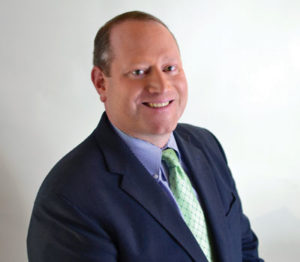Speaking Up for the Industry
By Stephen Bennett

When proposed legislation could help or hurt fuel oil marketers, the industry needs to make itself heard. How does it do that?
Chris Herb, for one, calls his “go-to people.” The president of the Connecticut Energy Marketers Association, based in Cromwell, said, “They’re extremely engaged. They want to be involved and they are actively looking to [participate], whether it’s promoting or protecting the industry.” The go-to people are game to testify on proposed bills and to engage legislators.hen proposed legislation could help or hurt fuel oil marketers, the industry needs to make itself heard. How does it do that?
Then there is what Herb calls “the rise-to-the-occasion” group. “Something strikes them as so unjust, or there is something that is so desperately needed, that they rise to the occasion and become leaders on an issue,” Herb said.
And what qualifications does a fuel oil marketer need to make a difference in the halls of government and, in turn, the industry?
“There are no requisite skills if you are passionate,” Herb said. “A passionate, informed petroleum marketer will go a very long way in seeing issues to the end,” resulting in outcomes that are in the industry’s best interests, Herb said. Some members who advocate may be very skilled at writing testimony or very comfortable speaking in public, Herb noted, but having such skills is not a requirement: “If you are passionate you will find a way to effectively communicate where you stand.”
Kate Childs, vice president of Tuxis-Ohr’s Fuel in Meriden, who chairs CEMA’s legislative committee, said of fuel marketers advocating, “Anybody could do it, because everybody is knowledgeable about the product we’re selling.” Childs said she understood that some members might be wary about dealing with legislators. “But,” she said, lawmakers “are not as educated about the product as we are. That knowledge lends confidence when it’s time to step forward and speak publicly. You’re not uncomfortable when you know the topic. There’s no reason to be.”
A proposed bill to create a “guarantee fund” spurred Childs, along with Julie and Kevin Roman of Roman Oil in Meriden, to act (as outlined in the CEMA awards coverage in the November issue of FON).
“That’s a good example,” Herb said. “Julie and Kevin Roman had no experience whatsoever in engaging in legislative issues, but it struck them as unfair, unjust—and they decided to get engaged.”
The bill for a guarantee fund was proposed after Ace Oil in Meriden went out of business, taking customer pre-buy deposits with them. As a result, Herb said, “about a million-and-a-half dollars’ worth of pre-paid contacts were never honored. Those customers never received fuel even though they paid for it in full.”
Under the proposed legislation, each oil marketer in the state would have been required to pay more than $4,000 into the guarantee fund, regardless of whether or not they offered pre-buys. Then, if a heating oil dealer closed and was unable to provide the fuel oil that was promised, money from the fund would be used to make those customers whole.
The Romans and Childs played a major role in lobbying for alternative legislation. The marketers were honored as Marketers of the Year by the Connecticut association, which noted that they “stood up and took the bull by the horns,” and were instrumental in persuading legislators to support a different bill that did not call for creation of a guarantee fund.
Herb said he expects legislators will be hearing complaints about the Ace Oil closing from Ace customers—and voters—in the new legislative session. He said he would not be surprised if the proposal for a guarantee fund resurfaced. “We have a lot of concerns about that,” Herb said.
If the issue does come up again, the Romans and Childs might find themselves called up for another tour of duty.
Herb said the association functions in part as an “advance scout.” “We’re out there trying to sniff out issues prior to them actually becoming issues. And then our role is to inform the membership in general,” he said. The 600 members of CEMA include heating oil dealers, gasoline distributors and affiliated members who sell products and services to the industry
“The success and failure of legislative efforts rely on the ability of marketers to become informed and then to act,” Herb said. “We’ve been very fortunate in Connecticut to have really good volunteers who have decided that they have to play an active role in protecting and promoting their businesses. With that the future will be better than our past. I’m confident of that.
“Our basic job is to be informed and then communicate whatever the issue might be to the membership in general. Then we work with the membership to try to come up with consensus on how those issues should be dealt with. There are times when you have to go nuclear, and there are times when you have to finesse things a bit.”
Looking ahead to the issues that are likely to dominate in the coming legislative session, Herb said, “We obviously expect a set of issues regarding natural gas expansion. In Connecticut the expansion has not gone as perfectly as the utilities would have hoped for. So we are going to be highly engaged in making sure there are no taxpayer subsidies to try to help advance conversion and expansion.”
CEMA reported in its newsletter that it filed a lawsuit in October in Hartford Superior Court against the Connecticut Department of Energy and Environmental Protection and the Connecticut Public Utilities Regulatory Authority alleging both the agency and regulatory board violated state environmental laws in an effort to fast-track Gov. Dan Malloy’s energy plan to convert 280,000 homes and businesses from heating oil to natural gas. The lawsuit contends that in pushing through the state’s multi-billion dollar energy plan, DEEP and PURA are blatantly ignoring state laws which require environmental evaluations of the gas expansion projects.
The lawsuit seeks to stop any further implementation of the state’s natural gas infrastructure expansion plan until an environmental impact evaluation is prepared or until an assessment is made to determine whether an EIE is necessary under state law. (For more on the lawsuit see page 11.)
Sulfur standards and biofuel mandates are important to the industry too, Herb said, and have a connection to fuel oil’s fight to be recognized as cleaner and greener than is generally perceived.
“Part of the challenge of conversions is the state’s assertion that natural gas is cleaner,” Herb said.
“Now we’ve reduced heating oil to 500 ppm we’re that much closer to being able to say that we’re the cleanest fuel in America,” Herb said. “It’s just a little baby step to 15ppm.” State law calls for ULS fuel oil to be 15ppm on July 1, 2018.
That low level of sulfur content, and 5% “or better” biocontent, Herb said, “allows us to shine the light back in legislators’ eyes to say, ‘We have the cleanest fuel in America.’
“We’re going to be engaged in a lot of education during this session, talking about the benefits of that combination,” Herb said. “We’re going to be very pro active in that regard.”
Herb added, “We’re eagerly anticipating the outcome of the ASTM effort to increase the amount of bio that can be used in heating oil. That’ll be a main driver.” A proposed B20 heating oil standard is being evaluated by ASTM, an organization of technical experts and business professionals who develop voluntary consensus standards.
Test results have shown that B20 and lower blends meeting the proposed standard “will perform as well—if not better—than conventional heating oil,” Steve Howell, chairman of the ASTM Biodiesel Task Force has said.

